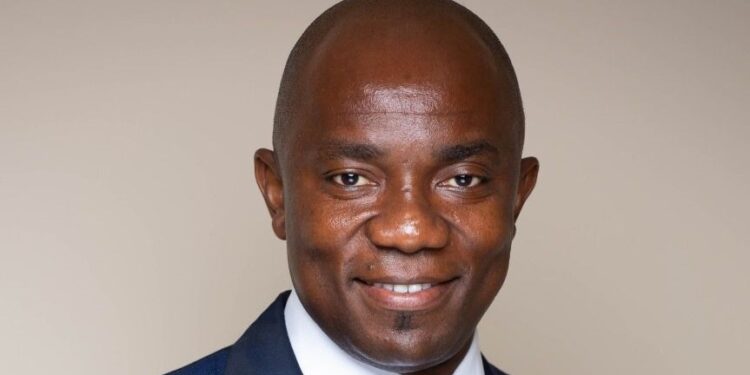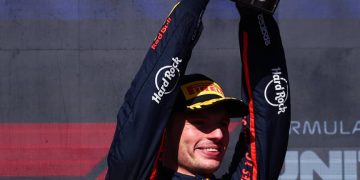From Sprints to Crude: How Athletic Skills are Fuelling Ghana’s Oil Sector
In the bustling heart of Accra, Ghana’s capital, an unexpected revolution is brewing in the oil and gas industry. The catalyst? Former elite athletes are bringing their unique skillsets to bear on one of the country’s most critical sectors.
At the forefront of this trend is Dr. Patrick Kwaku Ofori the Chief Executive Officer of the Ghana Chamber of Bulk Oil Distributors (CBOD), a former athlete himself. His journey from the track to the boardroom exemplifies a growing recognition that the high-pressure world of sports may be an ideal training ground for the volatile energy sector.
“Working with elite performers gives a strong indication that you need to have what it takes to cope with extreme pressure,” he explains, seated in his office overlooking the city. “In sports, you’re constantly under global scrutiny while managing internal challenges. That’s not so different from navigating the oil industry’s demanding environment.”
The transition from sports to oil might seem a leap, but the CBOD chief insists the skills are highly transferable. “Communication skills, teamwork, preparation, and the ability to motivate others are crucial in both arenas,” he says. These soft skills, often overlooked in technical industries, are proving invaluable in navigating the complex web of stakeholders in the energy sector.
In Ghana’s oil industry, where currency fluctuations, volatile global prices, and stringent regulatory requirements create a high-stakes environment, these skills are particularly prized. “You’re trading on a day-to-day basis where your environment is critical,” the CEO explains. “Sensitive information from Iraq or any oil-producing country may impact your decisions. You need to manage your immediate environment while making decisions with significant financial implications.”
This approach to talent acquisition comes at a critical time for Ghana’s oil sector. As the country continues to develop its oil and gas resources, the need for adaptable, resilient leaders has never been greater. The industry’s challenges may well be met by those who have already proven themselves on the world stage – albeit in a very different arena.
But the implications of this trend extend beyond the boardroom. Dr. Patrick Kwaku Ofori CEO sees potential for this approach to address broader issues of workforce development and local content in Ghana. “We could use this as an initiative to unearth talent,” he suggests, drawing parallels with the Industry’s efforts to train even artisans and welders.
However, he emphasizes that education remains crucial. “We’re not pushing to bring in someone who can’t write their name,” he clarifies. “We’re saying provide the enabling environment for those who have invested in themselves.” This nuanced approach could open new career paths for athletes while addressing skill gaps in the industry.
The CEO of CBOD envisions a future where corporate social responsibility initiatives could play a key role. “If every leading institution would identify brilliant but talented athletes in their communities to train them, in 10, 15 years they will become advocates for dual career transition,” he says. “Ghana will become a better place, and it will promote a lot of initiatives.”
This vision extends to policy-making. The CEO calls for a collaborative effort involving the Ministries of Youth and Sports, Education, Employment and Labour, and Energy. “It’s about time we put a policy together to ensure that we do this,” he urges. “The budgetary support given to various sporting federations should be tied to programmes that equip and develop the athletes.”
For athletes considering this transition, the CBOD chief’s advice is clear: “The key tenets we normally tell athletes – the quest to sacrifice, be determined, disciplined, dedicated, and committed to their career – still apply. But most importantly, they should be able to combine formal education with their sports so that nothing becomes a barrier to their progression.”
As the sun sets over Accra, casting a golden glow on the city’s rapidly changing skyline, the CBOD CEO’s words resonate with possibility. This unconventional approach to talent could provide a competitive edge not just for Ghana’s oil and gas sector, but potentially for other industries looking to tap into the unique skillset of elite athletes.
The story of Ghana’s athletes-turned-oil-executives is more than just a tale of individual career transitions. It’s a narrative about reimagining talent, breaking down silos between sectors, and creating new pathways for national development.
As Ghana continues to navigate the complexities of its growing oil and gas industry, it may find that some of its most valuable resources have been sprinting on tracks and competing in arenas all along.
In the end, this innovative approach could reshape both athletic training and industry recruitment in Ghana for years to come, creating a legacy that extends far beyond the oil fields and sports arenas of today.









